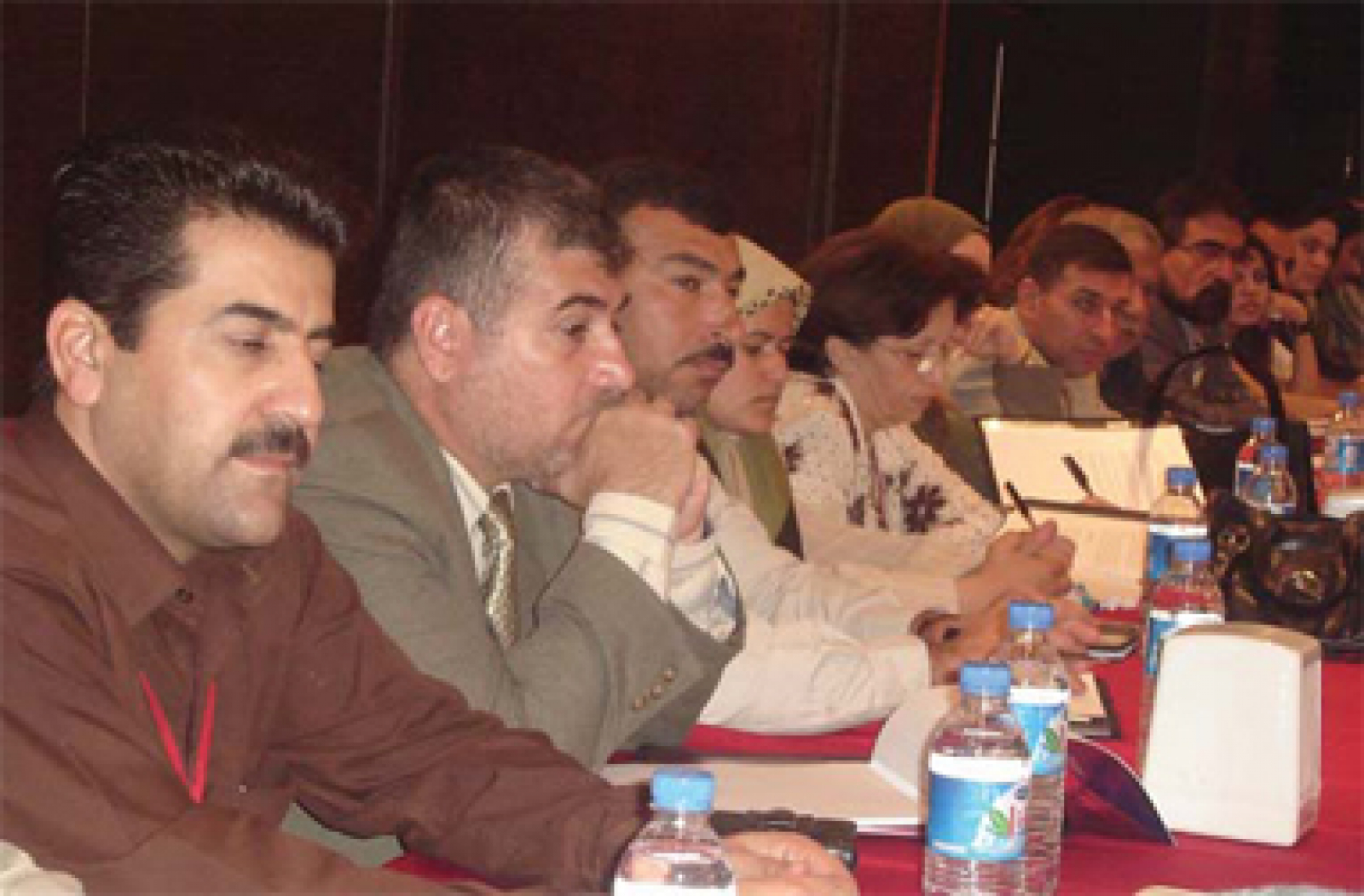
SHARE
The disputed oil-rich Iraqi city of Kirkuk, claimed historically by both Kurds and Turkmen, encompasses all of the major challenges that impact the country as a whole -- sectarian clashes, security crises, disputed natural resources, forced displacement, and foreign political involvement. A referendum will determine whether the city will become part of the semi-autonomous Kurdistan region or part of greater Iraq. Left unresolved, tensions between the different ethnic communities in Kirkuk could exacerbate conflicts throughout the country.
In an effort to engage the adversarial parties, NDI organized a multi-party, multi-ethnic forum last fall moderated by Lord John Alderdice, a key figure in the Northern Ireland peace negotiations and former speaker of the Northern Ireland Assembly. The goal was to bring together disparate factions to address possible solutions to the region's strife.
The result was an unanticipated breakthrough -- a negotiated end to the year-long Arab bloc boycott of the Kirkuk Provincial Council, which serves as the legislature of Kirkuk. Organizers now hope the forum will lead to larger discussions on the future status of Kirkuk, with representation from all groups affected by its uncertain status.
At the forum, male and female participants of different constituencies, ethnicities, religions, generations and interest groups discussed security, economic development, public administration and other issues affecting the disputed area. They agreed that all major problems flowed from common circumstances, including corruption, the poor security environment, foreign interference, the need to modernize government and economic infrastructure, lack of trust among Kirkuk's various ethnic and religious groups, and delayed implementation of Article 140 -- a provision of the Iraqi constitution that outlines a three-step process to determine whether Kirkuk will become part of the semi-autonomous Kurdish Regional Government or remain under the central Iraqi government.
Establishing Trust
Later, Lord Alderdice met with nine senior members of Iraq's Council of Representatives who visited Belfast on an NDIsponsored study mission to gain a comparative perspective on issues common to both societies -- ending sectarian discord, brokering peace agreements, power sharing, policing and policy issues. The Iraqis discussed these issues with representatives from all sides of the Northern Ireland conflict.
The Iraqis also met with the leadership of Northern Ireland -- including then First Minister Dr. Ian Paisley of the Unionist Party and Deputy First Minister Martin McGuinness of Sinn Féin. "There are people in the world who think a resolution of the situation in Iraq is impossible," said McGuinness. "I don't accept that. Many people thought it was impossible that Dr. Paisley and I would even sit here in this room together."
–
Published on July 7, 2008


